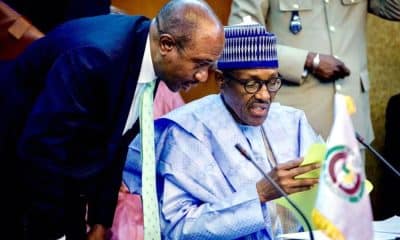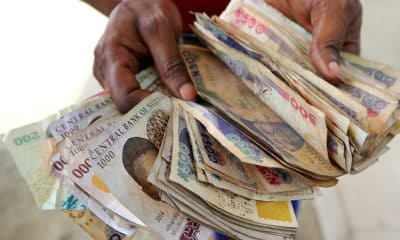Nigeria News
Forex Market Sees Sharp Decline In Dollar Sales As Naira Weakens Further

The Nigeria Autonomous Foreign Exchange Market (NAFEM) experienced a significant decrease in dollar sales on Friday, with transactions dropping by $252 million to $84.1 million, marking a 74 percent fall from Thursday’s $336.11 million.
This sharp decline coincided with a depreciation of the naira, which fell to ₦1,537/$ in the official market from ₦1,498/$ the previous day, according to data from the FMDQ Security Exchange.
The drop in forex turnover reflects broader challenges in the market despite contributions from commercial banks, the Central Bank of Nigeria (CBN), oil firms, and multinationals.
The parallel market also saw the naira weaken to ₦1,670/$ from ₦1,600/$, driven by strong demand for the US dollar among speculators and individuals with various needs, including business, tourism, education, and health.
An analysis of the week’s forex supply dynamics revealed fluctuations, with a notable increase on Tuesday followed by a steep decline, highlighting the volatility in the forex market.
Market experts attribute the naira’s depreciation to this high demand for dollars, predicting that the trend may persist.
In response to the forex market’s challenges, the CBN has implemented several policy measures to stabilise the currency and ensure adequate forex supply.
These include mandating Deposit Money Banks to sell their excess dollar stock and introducing prudential guidelines to curb hoarding and speculative activities.
Recent CBN guidelines have further tightened controls, with directives focused on Personal Travel Allowance, repatriation of revenues by International Oil Companies, and measures against under-invoicing of exports and over-invoicing of imports.
Despite these efforts, the disparity between the official and parallel market rates is widening, raising concerns over potential round-tripping activities.
Banks and International Money Transfer Operators (IMTOs) have begun implementing these new guidelines, issuing notices to customers and making operational adjustments.
However, the effectiveness of these interventions remains to be seen as the forex market continues to face significant pressure, underscoring the complex challenges in managing Nigeria’s foreign exchange resources and maintaining currency stability.










